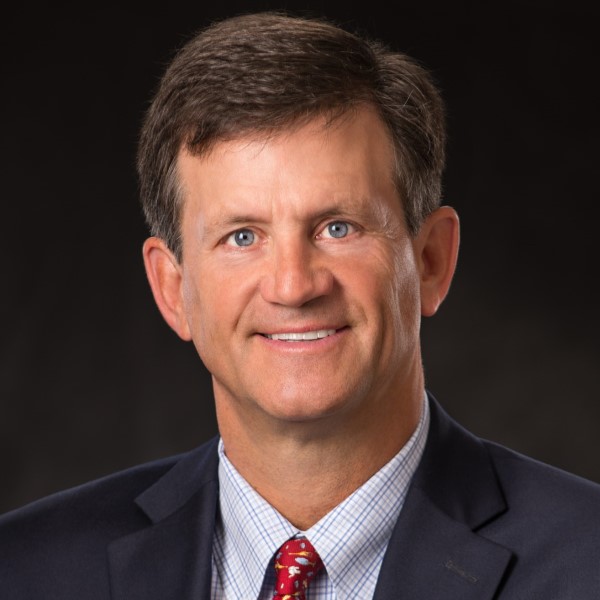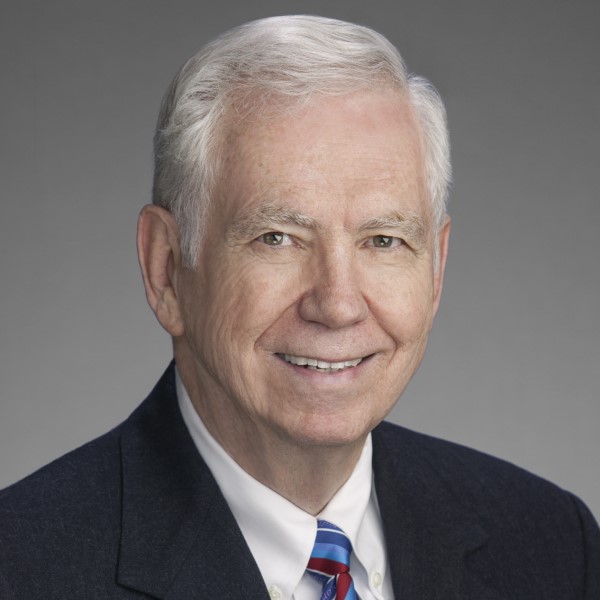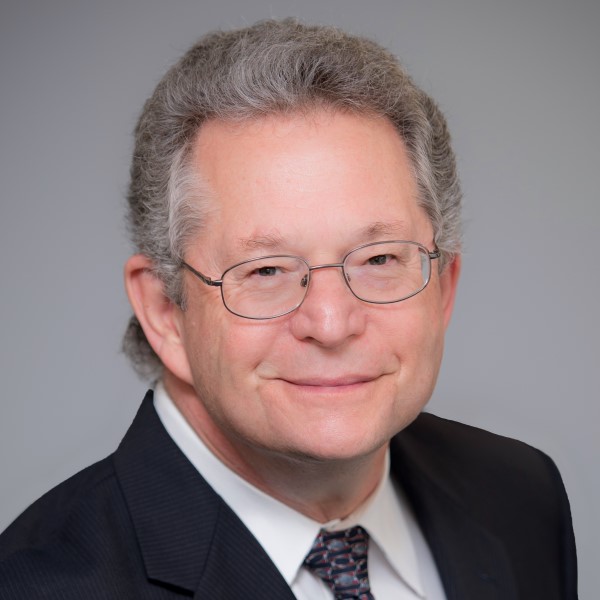
EB5 Investors Magazine is pleased to announce the Top Attorneys in specialized fields. To be eligible, these distinguished attorneys needed to be recognized as top attorneys in specialized EB-5 practice groups, which focus on EB-5 policy and lobbying matters, complex cases and immigration compliance.
For more information or to contact any of these professionals, we invite you to view their listings at www.EB5Investors.com/directories.
ROBERT DIVINE
Baker Donelson
 Robert C. Divine chairs the immigration group of Baker Donelson with offices in 24 U.S. cities, including Washington, D.C. He served from 2004 through 2006 as the chief counsel and, for a time, the acting director of USCIS. Divine is the author of “Immigration Practice,” a 1,600-page practical treatise on all aspects of U.S. immigration law. He served for seven years as a vice president of IIUSA, an industry association for EB-5 regional centers. He represents EB-5 developers, regional centers and individual foreign investors, balances immigration and securities considerations, and litigates when necessary.
Robert C. Divine chairs the immigration group of Baker Donelson with offices in 24 U.S. cities, including Washington, D.C. He served from 2004 through 2006 as the chief counsel and, for a time, the acting director of USCIS. Divine is the author of “Immigration Practice,” a 1,600-page practical treatise on all aspects of U.S. immigration law. He served for seven years as a vice president of IIUSA, an industry association for EB-5 regional centers. He represents EB-5 developers, regional centers and individual foreign investors, balances immigration and securities considerations, and litigates when necessary.
What do you think about the EB-5 Reform and Integrity Act of 2022?
The RIA imposes admirable “integrity” requirements, especially third-party funds administration, but also a lot of unnecessary paperwork and some frightening government authority. Happily, per USCIS, it will interpret it and grandfather past investors without regard to their regional center sponsor continuing. Requiring full disclosure of all promoter compensation is good, and it will be interesting to see how that affects the market. Visa reserves will be very important but hard to track.
What impact do you think the pandemic and the program lapse have had on the EB-5 industry?
Investors will be more cautious about what can go wrong. Happily, RIA prospectively grandfathers from program expiration new investors who file I-526 before September 30, 2026. Investors will be more careful about due diligence of project feasibility and capital stack. But there is pent up demand on all sides.
CHARLES FOSTER
Foster LLP
 Charles Foster is the chairman of the Houston-based Foster LLP and leads the firm’s EB-5 practice group. For more than 40 years, he has represented multinational businesses in the field of immigration law and has been board-certified as a specialist in immigration and nationality law since 1979. Foster has been involved in the EB-5 program since its enactment in 1990 and has worked closely with the Foster LLP EB-5 practice group for decades. He has also been recognized as a top EB-5 attorney by EB5 Investors Magazine and other organizations for a number of years.
Charles Foster is the chairman of the Houston-based Foster LLP and leads the firm’s EB-5 practice group. For more than 40 years, he has represented multinational businesses in the field of immigration law and has been board-certified as a specialist in immigration and nationality law since 1979. Foster has been involved in the EB-5 program since its enactment in 1990 and has worked closely with the Foster LLP EB-5 practice group for decades. He has also been recognized as a top EB-5 attorney by EB5 Investors Magazine and other organizations for a number of years.
What do you think about the EB-5 Reform and Integrity Act of 2022?
On balance, the new legislation is a big plus as it gives EB-5 professionals and investors a higher degree of certainty with the five-year extension and it provides more investor protection. However, the USCIS at the highest level must resolve several key issues. The legislation also disappoints in several areas, including the failure to provide more visa numbers.
What impact do you think the pandemic and the program lapse have had on the EB-5 industry?
The pandemic and EB-5 program lapse hurt the EB-5 program short term and long term. Short term, it made the inexcusable CIS backlog in adjudicating EB-5 petitions much worse, particularly the failure of Congress to extend the EB-5 program for almost one year. Long term, it hurt not only the EB-5 industry but the United States. It hurt not only because we lost the benefit of substantial investments in needed projects for almost one year, but also because such a lengthy lapse undermines overall confidence in the EB-5 program, even with the enactment of the new and needed legislation extending the program.
DAVID HIRSON
David Hirson & Partners
 David Hirson has 40 years of experience in U.S. immigration law, specializing in business and investment immigration. He is the founding and manager partner of David Hirson & Partners, LLP, and he is internationally recognized for his decades of success in investment immigration, specifically EB-5. Hirson and his partners have decades of experience in advising individuals, start-ups, large corporations, hospitals, and universities in navigating complex areas of employment immigration. The firm’s business and employment-based immigration practice provides a full range of immigration services for all U.S. visa types. Hirson also specializes in guiding franchise businesses who have foreign partners/managers.
David Hirson has 40 years of experience in U.S. immigration law, specializing in business and investment immigration. He is the founding and manager partner of David Hirson & Partners, LLP, and he is internationally recognized for his decades of success in investment immigration, specifically EB-5. Hirson and his partners have decades of experience in advising individuals, start-ups, large corporations, hospitals, and universities in navigating complex areas of employment immigration. The firm’s business and employment-based immigration practice provides a full range of immigration services for all U.S. visa types. Hirson also specializes in guiding franchise businesses who have foreign partners/managers.
What do you think about the EB-5 Reform and Integrity Act of 2022?
The RIA has been in the works for many years. The expressed intent was to create a safe environment for foreign investors and reduce the level of fraud. While this objective appears to be fully accomplished, the EB-5 industry was generally in favor of the new security provisions. Of great concern was the interpretation by USCIS of the law by stating that the new act totally ended the original regional center “pilot” program and replaced it. It seems that USCIS will continue adjudicating cases filed prior to June 30, 2021. It is not clear what will happen with all of those pending cases as USCIS streamlines its policy, issues new forms and will probably issue new regulations.
What impact do you think the pandemic and the program lapse have had on the EB-5 industry?
Prior to the pandemic, the EB-5 program had already sustained a substantial downturn by reason all the difficulty to transfer funds from countries like China, the direction that Administration of the time issued to slow all adjudications and USCIS following this direction so that the number of EB-5 adjudications slowed to a trickle. The backlog of available visa numbers compounded the existing problem. The pandemic added to the problem with quarantines and lockdowns. The direct pool investment programs however flourished only to be cut off with the passing of the Reform & Integrity Act of 2022. The direct employment program is now restricted to one investor. While I understand the reasoning for the controls that Congress wished to impose on the program, I believe that it would have been logical to set a minimum number of direct hire investors for investment in a small pool so that families, friends and others could come together in a single investment as has been the case over many years.
RONALD KLASKO
Klasko Immigration Law Partners
 Ronald Klasko leads the E-2 and EB-5 Investors Team at Klasko Immigration Law Partners. They have represented thousands of investors, over 50 regional centers, and many developers. Klasko currently chairs AILA’s Administrative Litigation Task Force and served five terms as chair of AILA’s EB-5 Committee. He is also a former national president and general counsel of AILA. He is the only person twice honored with the AILA Founders Award for his contributions to immigration law. He has been selected for inclusion in Best Lawyers in America for over two decades. He is the North American Representative of the Investment Migration Council.
Ronald Klasko leads the E-2 and EB-5 Investors Team at Klasko Immigration Law Partners. They have represented thousands of investors, over 50 regional centers, and many developers. Klasko currently chairs AILA’s Administrative Litigation Task Force and served five terms as chair of AILA’s EB-5 Committee. He is also a former national president and general counsel of AILA. He is the only person twice honored with the AILA Founders Award for his contributions to immigration law. He has been selected for inclusion in Best Lawyers in America for over two decades. He is the North American Representative of the Investment Migration Council.
What do you think about the EB-5 Reform and Integrity Act of 2022?
The RIA is a negotiated compromise. Like all compromises, it contains good and bad provisions. The bottom line is that the RIA potentially revitalizes the EB-5 industry, making it stronger than ever with enhanced investor protections. However, the ultimate impact of the RIA depended on the litigation challenging the USCIS’ position that all regional centers are terminated and must apply for and receive new designations before any project approval or investor petition can be filed. Since it was overturned in court, the EB-5 industry could be stronger than ever. That is why I represented five leading regional centers and IIUSA challenging USCIS’ interpretation of the RIA.
What impact do you think the pandemic and the program lapse have had on the EB-5 industry?
The regional center program lapse had a huge impact on every aspect of the EB-5 industry. For investors, it delayed adjudication of I-526 petitions. It resulted in unused quota numbers for investors. It diminished the confidence of investors in the program. Hopefully, the grandfathering provisions in the new law will provide greater confidence level to investors who are concerned about future lapses. For regional centers, the program lapse meant uncertainty regarding development of new projects. Projects in the planning stage had to be delayed, or in some cases, abandoned. The long-term reauthorization of the program breathes life back into regional centers.
MARTIN LAWLER
Lawler & Lawler
 Martin J. Lawler is an immigration law specialist with more than 32 years of experience. His practice is focused on securing temporary visas, permanent residence, naturalization, and passports for thousands of people from all around the globe. Lawler is also specialized in investor visas, family-based visas, asylum, and deportation defense. He is a frequent speaker at industry events and a lecturer on various visa matters at prestigious universities. In addition to writing numerous articles for leading publications, Lawler is the author of the book Professionals: A Matter of Degree, a prominent treatise on employment-based temporary visas and permanent resident status.
Martin J. Lawler is an immigration law specialist with more than 32 years of experience. His practice is focused on securing temporary visas, permanent residence, naturalization, and passports for thousands of people from all around the globe. Lawler is also specialized in investor visas, family-based visas, asylum, and deportation defense. He is a frequent speaker at industry events and a lecturer on various visa matters at prestigious universities. In addition to writing numerous articles for leading publications, Lawler is the author of the book Professionals: A Matter of Degree, a prominent treatise on employment-based temporary visas and permanent resident status.
CAROLYN LEE
Carolyn Lee PLLC
 Carolyn Lee is the founder of Carolyn Lee PLLC, an exclusively investment immigration firm. Lee has represented regional centers, developers, funds, and investors for 15 years, helping U.S. project clients raise $2.5 billion in EB-5 capital from thousands of overseas investor families. She has served as four-term chair of AILA National EB-5 Committee. She is also legislative counsel to IIUSA advising on EB-5 legislation. Lee is deemed an international expert on U.S. investment immigration and has authored numerous leading EB-5 publications and speaks internationally. She frequently serves as immigration expert in litigation. She has received awards including the AILA Presidential Commendation, Best Lawyers, Who’s Who International, and 50 Outstanding Asian Americans in Business.
Carolyn Lee is the founder of Carolyn Lee PLLC, an exclusively investment immigration firm. Lee has represented regional centers, developers, funds, and investors for 15 years, helping U.S. project clients raise $2.5 billion in EB-5 capital from thousands of overseas investor families. She has served as four-term chair of AILA National EB-5 Committee. She is also legislative counsel to IIUSA advising on EB-5 legislation. Lee is deemed an international expert on U.S. investment immigration and has authored numerous leading EB-5 publications and speaks internationally. She frequently serves as immigration expert in litigation. She has received awards including the AILA Presidential Commendation, Best Lawyers, Who’s Who International, and 50 Outstanding Asian Americans in Business.
What do you think about the EB-5 Reform and Integrity Act of 2022?
It’s what we needed and worked very hard toward achieving. Yet there was a bit of a “raisin in the sun” feel with USCIS’s April 29 interpretation requiring regional center re-designation (before it was overturned).
What impact do you think the pandemic and the program lapse have had on the EB-5 industry?
I’ll just speak for myself. It’s given me appreciation for this wonderful program that gives a good deal to all the participants. It’s reinforced the power of the collective. The lapse has brought together investor groups, industry groups, advisors, and individuals to speak about the responsibility we all have to keep this program going as long as there are investors in it.
LAURA FOOTE REIFF
Greenberg Traurig
 Laura Foote Reiff has been involved in EB-5 since the program’s inception in 1990. With roots as a business immigration attorney assisting with EB-5 direct investments, Reiff is a shareholder in Greenberg Traurig, LLP’s immigration and compliance group, a co-managing shareholder for the firm, and the leader of The EB-5 Immigration Coalition – a diverse organization of trade associations and businesses working to advance the EB-5 program. She collaborates with Greenberg Traurig’s dedicated EB-5 team, which includes professionals such as economists and securities attorneys, to assist both investors and developers across the full spectrum of EB-5 matters.
Laura Foote Reiff has been involved in EB-5 since the program’s inception in 1990. With roots as a business immigration attorney assisting with EB-5 direct investments, Reiff is a shareholder in Greenberg Traurig, LLP’s immigration and compliance group, a co-managing shareholder for the firm, and the leader of The EB-5 Immigration Coalition – a diverse organization of trade associations and businesses working to advance the EB-5 program. She collaborates with Greenberg Traurig’s dedicated EB-5 team, which includes professionals such as economists and securities attorneys, to assist both investors and developers across the full spectrum of EB-5 matters.
What do you think about the EB-5 Reform and Integrity Act of 2022?
The EB-5 Reform and Integrity Act was a good start in a very long road to full EB-5 reform. We have a long way to go before we see the program operating in a way that benefits the U.S. more fully. We fought to have the agency recognize pre-existing regional centers and pre-existing approved projects (before that was overturned) and we need Congress to act to deal with significant concerns about backlogs and other key issues.
What impact do you think the pandemic and the program lapse have had on the EB-5 industry?
The program lapse and COVID have seriously impacted the program. Many visa numbers have gone unused in a program that has so many investors in backlogs. We also have an agency that can’t figure out whether there really was a lapse at all. Department of Justice speaking on behalf of the agency in court on June 1, 2022, alleged that the program never really lapsed at all and that pursuant to Section 610(a) of the 1992 Appropriations Act and that Section 610(a) the program continued up and until the passage of the reform act. This runs directly contrary to agency interpretation and guidance to the community.
LINCOLN STONE
Stone Grzegorek & Gonzalez
 Since 1991, Lincoln Stone has successfully helped several thousand families obtain U.S. permanent residency through investment. He specializes in achieving solutions for denied or challenged cases, and advising about complex business structures and litigation. He has been an immigration counsel for regional centers and organizations in raising $5 billion in EB-5 capital in over 200 different job-creating enterprises. Stone draws from broad private law experience in business litigation and transactions, and U.S. government experience in courts and litigation. His approach is interdisciplinary, international and focused on the goals of migrant families. His formal education is in law, business, humanities and global health.
Since 1991, Lincoln Stone has successfully helped several thousand families obtain U.S. permanent residency through investment. He specializes in achieving solutions for denied or challenged cases, and advising about complex business structures and litigation. He has been an immigration counsel for regional centers and organizations in raising $5 billion in EB-5 capital in over 200 different job-creating enterprises. Stone draws from broad private law experience in business litigation and transactions, and U.S. government experience in courts and litigation. His approach is interdisciplinary, international and focused on the goals of migrant families. His formal education is in law, business, humanities and global health.
BERNARD WOLFSDORF
WR Immigration
 Bernard Wolfsdorf is past president of AILA where he earned the Service Excellence award. He is managing partner of WR Immigration, a law firm focused on innovation/technology with offices in Boston, Los Angeles, New York, Oakland, San Francisco, Petoskey, San Diego, Santa Monica, and Shanghai. Chambers USA awarded him Eminent Status. He has been selected as Immigration Lawyer of the Year by WWL and by Best Lawyers U.S. News and World Report. EB5 Investors Magazine has named him in its ranking for the sixth time. Chambers USA describes him as “(o)ne of the hardest-working immigration lawyers around.”
Bernard Wolfsdorf is past president of AILA where he earned the Service Excellence award. He is managing partner of WR Immigration, a law firm focused on innovation/technology with offices in Boston, Los Angeles, New York, Oakland, San Francisco, Petoskey, San Diego, Santa Monica, and Shanghai. Chambers USA awarded him Eminent Status. He has been selected as Immigration Lawyer of the Year by WWL and by Best Lawyers U.S. News and World Report. EB5 Investors Magazine has named him in its ranking for the sixth time. Chambers USA describes him as “(o)ne of the hardest-working immigration lawyers around.”
What do you think about the EB-5 Reform and Integrity Act of 2022?
The new EB-5 law has both good and bad. The best part is concurrent filing that allows certain persons lawfully in the U.S. to file adjustment of status applications with interim travel/work benefits. This provides real solutions for many in the U.S. with pending applications, and for new applicants. Also, the new section 245(k) adjustments allow applicants without status for up to 180 days to adjust status. Unfortunately, the law has not resolved waiting line issues, although it has created an extremely popular reserved rural category and new reserved high unemployment/infrastructure categories.
What impact do you think the pandemic and the program lapse have had on the EB-5 industry?
The program lapse caused a huge amount of frustration for pending and approved cases, which, together with the pandemic, created the largest slump the industry has ever seen. The good news is we now appear to be having a huge rebound with new opportunities being opened for many investors, especially in the rural area. This massive surge is triggered in part by people who realize that the U.S. has the best medicines and treatments for COVID, and together with a surging economy, excellent opportunities for study, career and quality of life.
STEPHEN YALE-LOEHR
Miller Mayer
 Steve Yale-Loehr is an attorney of counsel in Miller Mayer’s immigration practice group. He brings more than 35 years of immigration law experience to bear in advising corporate and individual clients on a broad array of family- and employment-based immigration matters. In addition to his work at Miller Mayer, Yale-Loehr is an active and internationally renowned member of the immigration law community. He teaches immigration and asylum law at Cornell Law School as a professor of immigration practice. He also founded and was the original executive director of Invest in the USA (IIUSA), a trade association of EB-5 immigrant investor regional centers. He is listed in Who’s Who in America and is annually listed in Chambers Global, Chambers USA, and An International Who’s Who of Corporate Immigration Lawyers as one of the world’s best immigration lawyers.
Steve Yale-Loehr is an attorney of counsel in Miller Mayer’s immigration practice group. He brings more than 35 years of immigration law experience to bear in advising corporate and individual clients on a broad array of family- and employment-based immigration matters. In addition to his work at Miller Mayer, Yale-Loehr is an active and internationally renowned member of the immigration law community. He teaches immigration and asylum law at Cornell Law School as a professor of immigration practice. He also founded and was the original executive director of Invest in the USA (IIUSA), a trade association of EB-5 immigrant investor regional centers. He is listed in Who’s Who in America and is annually listed in Chambers Global, Chambers USA, and An International Who’s Who of Corporate Immigration Lawyers as one of the world’s best immigration lawyers.
What do you think about the EB-5 Reform and Integrity Act of 2022?
The EB-5 Reform and Integrity Act of 2022 is a good first step to reinvigorate the EB-5 regional center program through better securities and immigration law oversight. I was happy to help lobby on behalf of the bill, particularly the provisions to protect pending EB-5 investors who were stuck during the nine months the program lapsed. The EB-5 can stimulate the economy in so many ways.
What impact do you think the pandemic and the program lapse have had on the EB-5 industry?
The EB-5 market is diversifying. I predict that China will no longer dominate EB-5 applications. I see increasing interest in countries like India, Vietnam, and South America. This may make it more challenging for regional centers that lack large marketing staffs to find investors. I also predict that because of changes Congress made in the EB-5 Reform and Integrity Act of 2022, there will be more smaller (less than $25 million in EB-5 money) projects and fewer huge projects like Hudson Yards. New EB-5 projects are also likely to be less concentrated in large metropolitan projects and more spread out across the United States.
DISCLAIMER: The views expressed in this article are solely the views of the author and do not necessarily represent the views of the publisher, its employees. or its affiliates. The information found on this website is intended to be general information; it is not legal or financial advice. Specific legal or financial advice can only be given by a licensed professional with full knowledge of all the facts and circumstances of your particular situation. You should seek consultation with legal, immigration, and financial experts prior to participating in the EB-5 program Posting a question on this website does not create an attorney-client relationship. All questions you post will be available to the public; do not include confidential information in your question.







